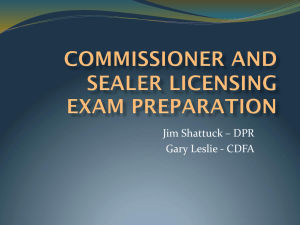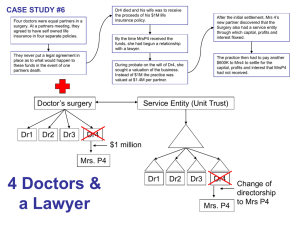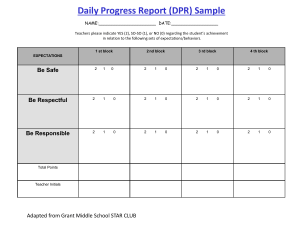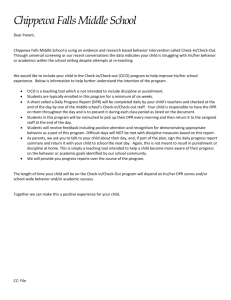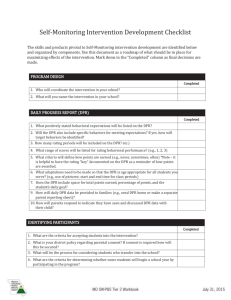15 Mar 2007 From: California Department of Pesticide Regulation
advertisement
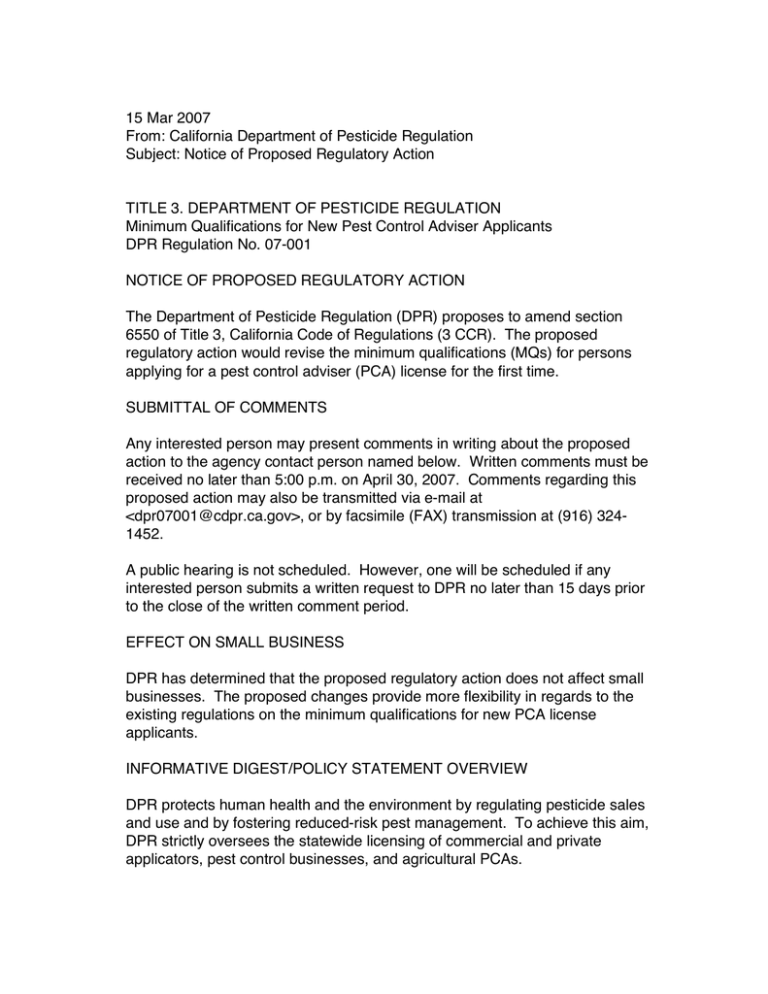
15 Mar 2007 From: California Department of Pesticide Regulation Subject: Notice of Proposed Regulatory Action TITLE 3. DEPARTMENT OF PESTICIDE REGULATION Minimum Qualifications for New Pest Control Adviser Applicants DPR Regulation No. 07-001 NOTICE OF PROPOSED REGULATORY ACTION The Department of Pesticide Regulation (DPR) proposes to amend section 6550 of Title 3, California Code of Regulations (3 CCR). The proposed regulatory action would revise the minimum qualifications (MQs) for persons applying for a pest control adviser (PCA) license for the first time. SUBMITTAL OF COMMENTS Any interested person may present comments in writing about the proposed action to the agency contact person named below. Written comments must be received no later than 5:00 p.m. on April 30, 2007. Comments regarding this proposed action may also be transmitted via e-mail at <dpr07001@cdpr.ca.gov>, or by facsimile (FAX) transmission at (916) 3241452. A public hearing is not scheduled. However, one will be scheduled if any interested person submits a written request to DPR no later than 15 days prior to the close of the written comment period. EFFECT ON SMALL BUSINESS DPR has determined that the proposed regulatory action does not affect small businesses. The proposed changes provide more flexibility in regards to the existing regulations on the minimum qualifications for new PCA license applicants. INFORMATIVE DIGEST/POLICY STATEMENT OVERVIEW DPR protects human health and the environment by regulating pesticide sales and use and by fostering reduced-risk pest management. To achieve this aim, DPR strictly oversees the statewide licensing of commercial and private applicators, pest control businesses, and agricultural PCAs. DPR's Licensing and Certification Program administers examinations and certifies or licenses all applicants who meet the requirements for certification or licensure. Among these applicants are PCAs. If first-time applicants meet the MQs, they gain entrance to the PCA license examinations. Once they pass the required examinations, they become licensed as PCAs. Food and Agricultural Code (FAC) section 11410 defines an agricultural PCA as "any person who offers a recommendation on any agricultural use, who holds himself or herself forth as an authority on any agricultural use, or who solicits services or sales for any agricultural use." FAC section 12001 states, "No person shall act, or offer to act, as an agricultural pest control adviser without first having secured an agricultural pest control adviser license from the Director . . . ." Section 6550, 3 CCR, requires any person who is applying for an agricultural PCA license for the first time to meet specific educational and/or a combination of education and work experience MQs to demonstrate competency in making pest control decisions. The MQs for PCA applicants have been discussed and addressed by the Agricultural Pest Control Advisory Committee (APCAC) on an ongoing basis since 1994. The APCAC, established by statute in the FAC, advises the DPR Director in all matters concerning the licensing, certification, and regulation of persons and firms providing pest control advice and services in California. In 1994, the Infrastructure Task Force of the Director's Pest Management Advisory Committee (PMAC) recommended changes to upgrade the MQs for first-time PCA license applicants. The PMAC had proposed to increase the minimum educational requirements and to further specify the core course requirements in the topic areas of physical and biological sciences, crop health, pest management systems and methods, and crop production systems. Based on the PMAC's recommended changes and APCAC's concurrence, DPR revised the MQs for PCAs. The regulation adopting these changes was amended in May 1999 but was not in effect until January 1, 2003. This allowed a three-year grace period for first-year students enrolled at a college or university to meet the course work and qualify under the new MQs when they graduated in 2003. After an extensive analysis of incoming PCA applications in 2003, DPR concluded that well over 50 percent of the new applicants had failed to meet the new MQs. The major area of deficiency was in the pest management systems and methods core area. In a separate evaluation conducted by one of the Director's advisory committees, it was concluded that there were very few college courses offered in this area. In 2004, an APCAC subcommittee was established to determine if the courses offered at various California college and university campuses provided adequate opportunity for applicants to meet the revised MQs. After an exhaustive review, the subcommittee proposed broadening the MQs to include senior projects, independent studies, theses, seminars, and other educational avenues approved by the Director. As recommended and approved by the APCAC, DPR proposes to amend section 6550 to provide more flexibility in the educational and experience MQs, while still demanding a high level of skill and expertise of first-time PCA applicants. The proposed changes would: • Change the course unit requirements in the core-course topic area of crop health, pest management systems and methods, and production systems. • Broaden the types of course titles that would fulfill the MQ requirements such as: o Senior Project. o Master's Thesis. o Internship. o Independent Study. o Enterprise Project. o Work Experience. o Dissertation. • Require a minimum 2.0 grade-point average in the core courses. • Allow work as an assistant to, or work as, a certified crop adviser. • Require the applicant to submit an Agricultural Pest Control Adviser Minimum Qualifications for New License Applicants form (PR-PML-085, Rev. 12/06), incorporated by reference, and if applicable, documentation for special studies and course required, with the application for a new PCA license. IMPACT ON LOCAL AGENCIES OR SCHOOL DISTRICTS DPR has determined that the proposed regulatory action does not impose a mandate on local agencies or school districts, nor does it require reimbursement by the state pursuant to Part 7 (commencing with section 17500) of Division 4 of the Government Code because the regulatory action does not constitute a "new program or higher level of service of an existing program" within the meaning of section 6 of Article XIII of the California Constitution. DPR has also determined that no nondiscretionary costs or savings to local agencies or school districts will result from the proposed regulatory action. COSTS OR SAVINGS TO STATE AGENCIES DPR has determined that no savings or increased costs to any state agency will result from the proposed regulatory action. EFFECT ON FEDERAL FUNDING TO THE STATE DPR has determined that no costs or savings in federal funding to the state will result from the proposed action. EFFECT ON HOUSING COSTS DPR has made an initial determination that the proposed action will have no effect on housing costs. SIGNIFICANT STATEWIDE ADVERSE ECONOMIC IMPACT DIRECTLY AFFECTING BUSINESSES DPR has made an initial determination that the adoption of this regulation will not have a significant statewide adverse economic impact directly affecting businesses, including the ability of California businesses to compete with businesses in other states. COST IMPACTS ON REPRESENTATIVE PRIVATE PERSONS OR BUSINESSES DPR has made an initial determination that the adoption of this regulation will not have a significant cost impact on representative private persons or businesses since the regulatory action only clarifies the minimum qualifications for a PCA license. The agency is not aware of any cost impacts that a representative private person or business would necessarily incur in reasonable compliance with the proposed action. IMPACT ON THE CREATION, ELIMINATION, OR EXPANSION OF JOBS DPR has determined it is unlikely that the proposed regulatory action will impact the creation or elimination of jobs, the creation of new businesses or the elimination of existing businesses, or the expansion of businesses currently doing business with the State of California. The proposed regulatory action seeks to allow more flexibility in the education and experience MQs for the agricultural PCA license, which may increase the number of licensed PCAs in California. DPR acknowledges that a possible increase of licensed PCAs may lead to the creation of jobs and/or businesses; however, DPR believes this increase of jobs and businesses is highly unlikely due to the current situation of the agricultural industry, which is experiencing an economic lull. CONSIDERATION OF ALTERNATIVES DPR must determine that no reasonable alternatives considered by the agency, or that has otherwise been identified and brought to the attention of the agency, would be more effective in carrying out the purpose for which the action is proposed or would be as effective and less burdensome to affected private persons or businesses than the regulatory action. AUTHORITY This regulatory action is taken pursuant to the authority vested by FAC sections 11456, 12005, and 12024. REFERENCE This regulatory action is to implement, interpret, or make specific FAC section 12024. AVAILABILITY OF STATEMENT OF REASONS AND TEXT OF PROPOSED REGULATIONS DPR has prepared an Initial Statement of Reasons and has available the express terms of the proposed action, all of the information upon which the proposal is based, and a rulemaking file. A copy of the Initial Statement of Reasons and the proposed text of the regulation may be obtained from the agency contact person named in this notice. The information upon which DPR relied in preparing this proposal and the rulemaking file are available for review at the address specified below. AVAILABILITY OF CHANGED OR MODIFIED TEXT After the close of the comment period, DPR may make the regulations permanent if they remain substantially the same as described in the Informative Digest. If DPR does make substantial changes to the regulations, the modified text will be made available for at least 15 days prior to adoption. Requests for the modified text should be addressed to the agency contact person named in this notice. DPR will accept written comments on any changes for 15 days after the modified text is made available. AGENCY CONTACT Written comments about the proposed regulation action; requests for a copy of the Initial Statement of Reasons, the proposed text of the regulation, and a public hearing; and inquiries regarding the rulemaking file may be directed to: Linda Irokawa-Otani, Regulations Coordinator Department of Pesticide Regulation 1001 I Street, P.O. Box 4015 Sacramento, California 95812-4015 (916) 445-3991 Questions on the substance of the proposed regulatory action, particularly technical or historical questions concerning this proposal, may be directed to: Mac Takeda, Manager Pest Management and Licensing Branch Department of Pesticide Regulation (916) 445-3838 AVAILABILITY OF FINAL STATEMENT OF REASONS Following its preparation, a copy of the Final Statement of Reasons mandated by Government Code 11346.9(a) may be obtained from the contact person named above. In addition, the Final Statement of Reasons will be posted on DPR's Internet Home Page and may be accessed at <http://www.cdpr.ca.gov>.
